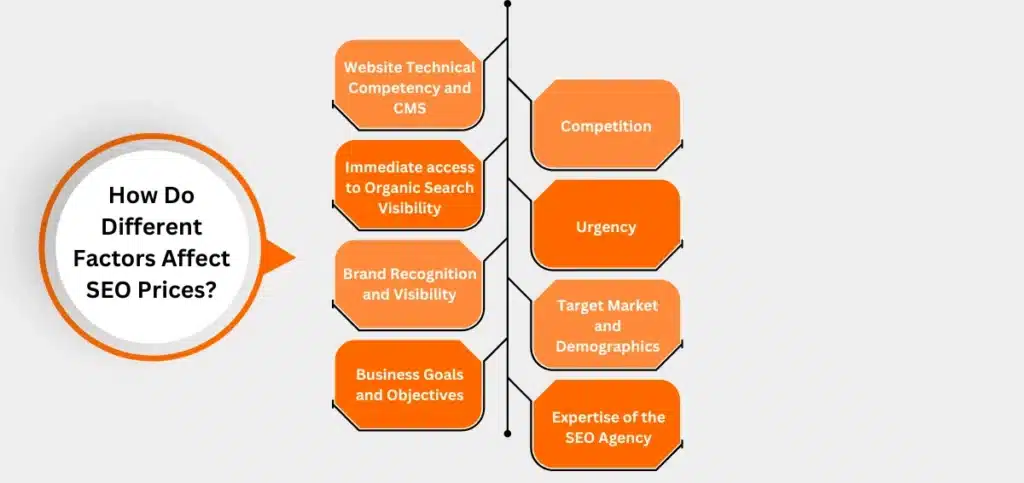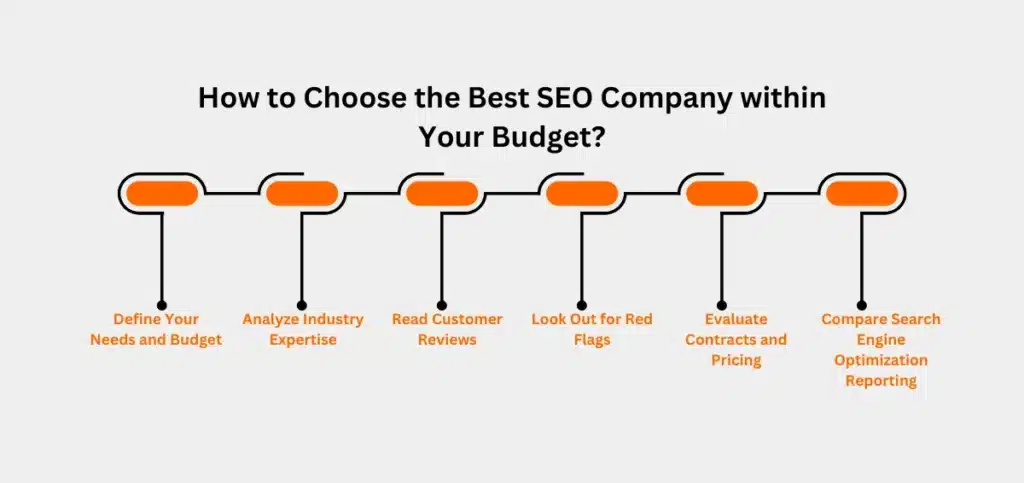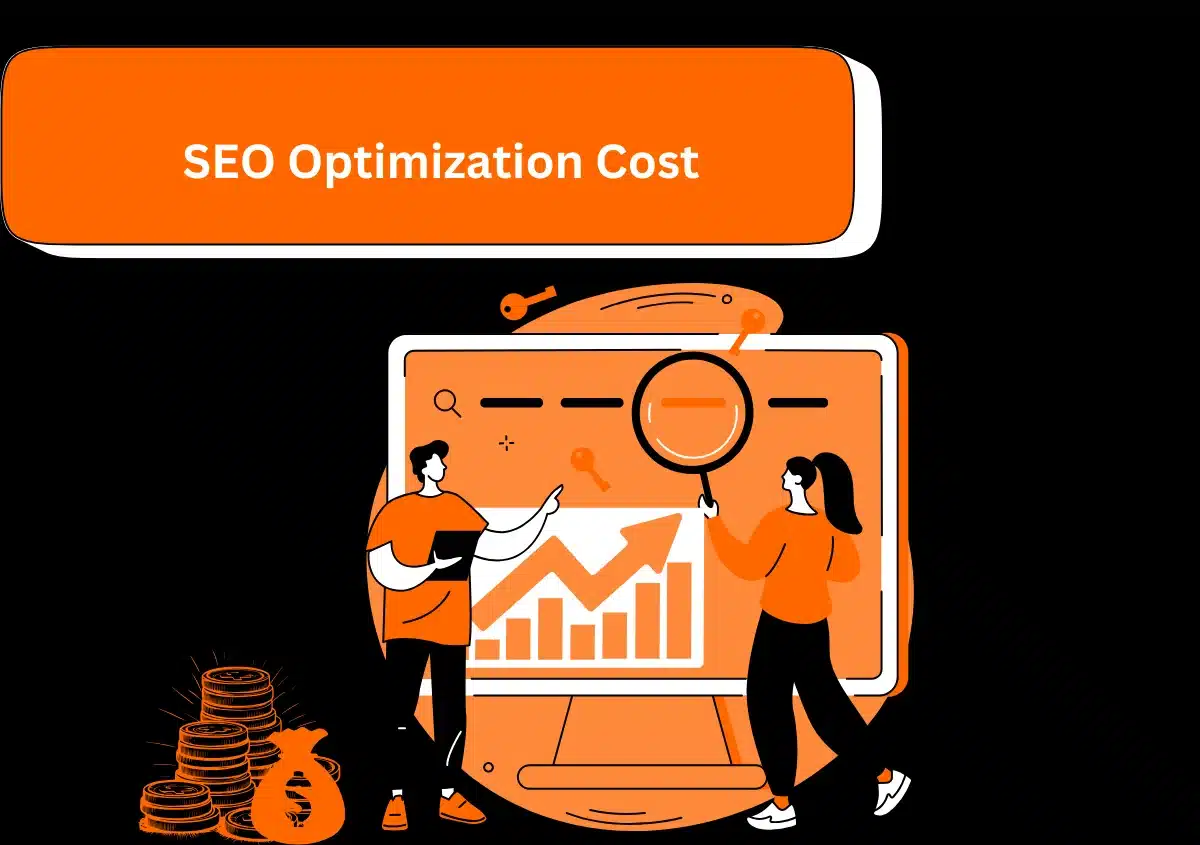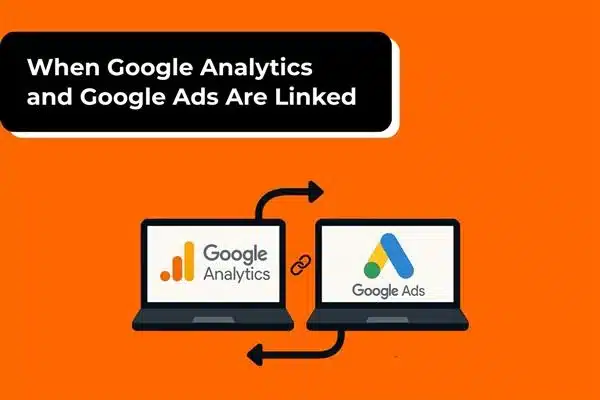There is a growing debate about the relevance of Search Engine Optimization (SEO) in today’s complex business environment. However, SEO isn’t dead as some may opine, it merely grew into much more complex branding material that can enable companies to grow their online presence with credibility. SEO has transformed from a traditional marketing technique to a branding strategy aimed at making web infrastructure search-engine-friendly. This approach towards improvement also mirrors the continuous updates in Google’s algorithms, which drive businesses to invest strategically.
While the question may arise of whether SEO still holds the dominant position in today’s competitive market, by optimizing your website for search engines, you can also rank higher on results pages and attract more potential customers.
Why Invest in Search Engine Optimization?
Before getting into the costs, there is a need to understand why SEO is worth investing in. SEO is significant to your business for the following reasons:
- Search engines are utilized by billions of people. Since more than 93% of online interactions begin with a search engine, SEO is important because it ensures that you can reach the billions of searches that take place on search engines. Online shoppers may prefer a competitor ranked higher on the search results page if they are unable to find your products and services.
- You cannot pay any search engine to rank your website higher in the organic search results, except for pay-per-click (PPC) advertisements that appear at the top of the search results page. Paying to appear higher in organic search results is not an option. Therefore, SEO is important to outperform your competitors.
- SEO can help answer customer questions. Answering questions and fulfilling a search intent constitute a major aspect of SEO. You’ll start providing users with the experiences and information they want when you have optimized your website. As a result, you will start building a reputation as an authority source and trusted platform that customers may return for.
Hence, search engine optimization is no longer a luxury in today’s competitive digital landscape. It’s a proven, adaptive strategy that will position your brand for success amidst the ever-changing world of search engine algorithms. SEO is a vital digital marketing strategy that ensures you can grow your online presence to boost sales if you want to effectively sell your products and services online.
Top SEO Pricing and Trends Insights
SEO is still a core investment for businesses, with 49% outsourcing services for cost efficiency and expert ROI. Here’s a compact rundown of pricing models, trends, and agency practices.
SEO Pricing Overview
- Monthly Budget: Most companies put aside $500 to $10,000 to be spent on SEO. For minor packages, most charge $1,500-$2,500, and advanced services are anywhere from $3,000-$5,000. Local automated SEO tools start at around $300 to $500 a month.
- Hourly Rates: Mainstream SEO generally falls between $50-$100 per hour; advanced techniques begin at $100-$300.
- Specialized Services: SEO content audits and link profile audits range between $500 and $7,500 according to complexity; SEO copywriting is between $0.5 and $5 per word.
Agency Pricing Trends
- Recommended Models: A monthly retainer is the most popular and successful pricing model according to 53% of responding businesses.
- Differences in regions: Agencies located in North America tend to be more expensive, with 40% of the surveyed hourly rates for North American agencies being higher than $125 while only 6% in Europe charge higher than $125.
- Pricing Changes: 70% of agencies increased prices or intend to increase prices by 2025, based on inflation, increasing expertise, and operational costs.
Emerging Practices
- Service Bundle: More than 85% of agencies combine SEO with PPC, SMM, web design, and website maintenance.
- AI Optimization: 61% of agencies will incorporate optimization for AI-powered engines. On average, a monthly fee of $937 for these services.
Growth and Retention Influence
Larger agencies and companies that retain the same client for more than two years charge a premium, with over 70% charging above $1,000 per month and $100 per hour. Agencies that maintain 25 projects or more in their pipeline tend to charge high fees. Nevertheless, companies prioritizing expertise and long-term plans can extract a lot of value from SEO. This can deliver sustainable growth, competitive advantage, and much more.
Key Takeaways
- Cost-Effectiveness: 49% of businesses are interested in investing in SEO as it becomes more cost-effective than in-house handling because the business acquires specialized expertise without added staff expenses.
- Average SEO Budget: 48% of businesses spend from $2,500 to $7,500 a month on SEO, reflecting how seriously this activity is being undertaken in terms of continuous and quality optimization.
- Hourly Rates: 64% of businesses prefer hourly rates of $50 to $100 for SEO services, offering flexibility and control over their spending.
- Agency Preference: 43% of businesses choose to hire an agency, taking advantage of their extensive experience and capabilities.
- Pricing Model: The most common search engine optimization service pricing model is monthly retainers, which provide clients with predictable costs and continuous support—something that brings them the highest level of satisfaction.
- Business Size Matters: Depending on the business size, an SEO pricing strategy will include cost, pricing model, and digital marketing agency service. Larger companies have more resources and probably a more complex need than small businesses do, meaning their SEO strategy and budget would be different.
Knowing the costs and factors associated with SEO will help a business choose the right SEO expert, manage expectations, and invest wisely to enhance its online presence.
How Do Different Factors Affect SEO Prices?

While rendering SEO services, diverse parameters go into the determination of the final price of any SEO campaign. Typically, to get a realistic estimation, customers would need to provide comprehensive details on their website, business goals, and SEO competition. Using these, a marketer or agency would come to clarity about the scope of work, content creation aspects, and estimated duration for completion of a project. Next are the important elements that affect the cost of SEO services.
1. Website Technical Competency and CMS
The technical underpinning of your website and the CMS you are using will significantly impact cost. A technically optimized website with industry best practices—ideally by an expert—facilitates SEO work and can thus reduce overall cost.
On the contrary, the less flexible CMS platforms such as Magento will require more work to get to the optimal level of performance in SEO. Websites that were never optimized or have technical issues automatically require more work to overcome these problems, increasing the general cost of SEO services.
2. Immediate access to Organic Search Visibility
Current levels of organic search visibility on a given website also greatly factor into the pricing. New websites that have no domain authority and lack current rankings will oftentimes come with a higher cost and a longer timetable before being visible.
Websites with some existing levels of search presence, like established brands or websites with solid backlink profiles, typically cost less for SEO due to the existing foundation.
3. Brand Recognition and Visibility
SEO costs also vary based on the level of brand awareness and exposure your business has. Established brands are likely to have a different pricing structure than new brands, as they may already reap the benefits of some online visibility, and their SEO strategies may require less heavy lifting. Building brand recognition from scratch for new businesses requires more time, effort, and investment in the process, which can increase SEO costs.
4. Business Goals and Objectives
How important SEO is to your business objectives also determines the price. For businesses where organic traffic is a core component of their sales model, investment in search engine optimization will logically be more. If your business depends heavily on online leads and conversions, then the amount of work that will go into reaching those objectives will dictate the total SEO investment. Businesses that take more passive approaches to SEO or business in less competitive markets will often be less costly.
5. Competition
The competition will also decide the cost you will incur with regards to an industry that you are involved with and the specifics of keywords, which you target for ranking high. With highly competitive industries or popular keywords, more extensive strategies, greater resource allocation, and larger investment are necessary to reach and then sustain high search engine rankings. The least competitive business fields are likely to have lower SEO costs, but again, potential costs must be considered for a given market.
6. Urgency
General consensus dictates that SEO is generally a long-term process. However, if the business requires faster results, it does increase the cost. Expediency to an SEO campaign means it takes more time and more resources, such as intensive content creation, faster technical fixes, and additional optimization efforts. For instance, if the timeline for the project is tight and requires a lot of output from the SEO agency, it will cost more compared to the project with an extended timeline.
7. Target Market and Demographics
The geographical reach of your SEO campaign, in turn, will determine its cost. For example, it would be costlier if the target geography is nationwide or worldwide, compared to a specific state or city; the competition and the requirements will be different. Similarly, the keywords might need to target differently, plus content is broader in volume – all these impact the cost.
8. Expertise of the SEO Agency
The cost will also be influenced by the experience and level of expertise of the SEO provider. Proven firms in SEO usually have a higher price because they strive to be consistent in yielding results for clients. With a history of success stories, there is no reason why a customer should not pay more for that kind of specialist knowledge to achieve great results.
9. Location of the SEO Agency
In addition, the location will also impact the pricing. For example, agencies in cities where the cost of living is relatively high, such as New York City, usually charge more since their overhead is higher. Conversely, those agencies outside large cities with a lower cost of living, like Akron, OH, will likely have relatively lower rates. Physical location can sometimes be a huge difference-maker in the ultimate cost of SEO services.
10. Competency in Your Target Language
The SEO company must be fluent in the language of your target market. This includes not only fluency in the language itself but also a deep understanding of local nuances, trends, and cultural context. Agencies that are familiar with your target language can then create more effective, culturally relevant content that improves overall success with an SEO strategy.
11. Niche Expertise
More likely, SEO agencies specialized in your industry will be more expensive since the knowledge and experience are highly specialized. Specialized e-commerce SEO companies are going to be able to build much more targeted and effective strategies for businesses within that space. Sure, niche agencies may be pricey, but generally, they get better results and are worth that investment for the businesses in these specialized fields.
Understanding the Costs of SEO: What to Expect?
The scope of prices paid for search engine optimization services varies widely, but businesses usually spend in a range between $3,000 and $7,500 for a month. Price is determined by several factors: the competitiveness of keywords targeted, the scope of services, and whether an agency is based in the U.S. or overseas, even down to hiring a freelancer.
Local SEO campaigns often are less costly, averaging $1,400 per month. Thus, there is a difference in the price; therefore, knowledge of the difference will make the right decision when choosing which SEO company fits your business needs.
Factors Influencing Price in SEO
- Scope of Service and Customization: SEO costs differ because of scope. A standard package usually provides keyword research, on-page optimization, link building, and content creation. However, a custom-fit strategy for any business is a more effective product than a generalized package, with a higher cost.
- Location: The location of your SEO agency can also deeply impact the costs. For instance, agencies in the US are often more expensive because they charge higher operational costs. Whereas, offshore agencies may offer cheaper rates but create problems like time zone differences and communication problems.
- Keyword Competition: The degree of competition on the keywords one aims to rank also plays a part in determining price. For industries that have heavy competition, a lot of extensive SEO will have to be implemented, increasing prices.
- Size and complexity of the project: More intricate projects, including technical SEO and even content marketing, will be much costlier.
- Beware of Guarantees: Be wary of SEO companies that guarantee top rankings or any specific results. Since SEO is an unpredictable business, such guarantees should raise a red flag because they disregard the various factors outside of a provider’s control.
- Knowing these pricing factors is as important for making informed decisions as it is for evaluating whether the digital marketing agency’s offerings align with your needs, industry expertise, and budget.
How Much Does Search Engine Optimization Cost?
- Monthly SEO: $2,500 to $7,500
- Hourly Rates: $50 to $100 per hour
- Project-Based: $2,000 to $7,500
This will further vary depending on the size of the business, the sector, objectives for SEO, and the complexity of the campaign. The smaller a business is, the less it would generally spend; however, bigger companies in highly competitive sectors often have higher costs associated with the larger amount of work required for optimization.
SEO Cost Distribution
- Cost per Month SEO
- $500 or Less: 3.89%
- $501-$1,000: 10.10%
- $1,001-$2,500: 24.61%
- $2,501 – $5,000: 34.97%
- $5,001 – $7,500: 13.21%
- $7,501 – $10,000: 7.77%
- Above $10,000: 5.44%
- Hourly SEO Costs
- Below $50: 28.95%
- $51 – $75: 43.86%
- $76 – $100: 20.18%
- $101 – $150: 3.51%
- $151 – $200: 0.88%
- Above $200: 2.63%
- Project-Based SEO Costs
- Below $500: 4.81%
- $501 – $1,000: 10.58%
- $1,001 – $2,500: 20.19%
- $2,501 – $5,000: 31.73%
- $5,001 – $7,500: 18.27%
- $7,501 – $10,000: 7.69%
- Above $10,000: 6.73%
How to Choose the Best SEO Company within Your Budget?

Even with all the analysis, and pricing models understanding, the selection of the right SEO agency can be a daunting task when balancing quality with your budget. A good company should not only be experienced in their field but also respect the Search Essentials by Google, making sure the SEO practices are moral and sustainable. They should also be open about their strategy and proactive in communication—always keeping you informed. Therefore, here is a step-by-step method for selecting the right SEO partner to match your business requirements and budget.
1. Define Your Needs and Budget
Before we get into the selection process, make clear what your SEO goals are.
- Do you want to drive more high-value organic traffic?
- Improve on-site SEO.
- Or perhaps a robust link acquisition strategy.
Once you know what you’re working with, take stock of your budget. That will tell you how you’re going to invest in content creation, link building, user experience (UX) development, and conversion rate optimization (CRO). Setting a realistic budget will guide your decision-making and ensure you spend money on the services you need.
2. Analyze Industry Expertise
When selecting a digital marketing agency, ensure they have experience in your specific industry and a proven track record. Review their portfolio and case studies to know how knowledgeable they are. Check for evidence of successful SEO audits, ethical white-hat SEO practices, and adherence to Google’s guidelines. Avoid companies that use certain questionable tactics, such as link schemes, as they can seriously damage the long-term performance of your site.
3. Read Customer Reviews
Customer reviews offer invaluable insights into the agency’s capabilities and reliability. Several platforms are excellent sources for client feedback. Reviews can reveal how well the agency delivers results, communicates with clients, and aligns with business objectives. Prioritizing this step ensures that you choose a trustworthy partner who will meet your expectations.
4. Look Out for Red Flags
Be wary of SEO providers who promise overnight results or guaranteed rankings. This is often a sign of something that could eventually lead to penalties from search engines and long-term damage to your website. Extremely low SEO rates should also be a red flag, as they may indicate low-quality services. Always prefer an SEO agency that focuses on sustainability in the strategies and applies modern tools for running SEO campaigns to ensure that your website remains competitive without using shortcuts.
5. Evaluate Contracts and Pricing
Clear, transparent contracts and price structures are needed when choosing an SEO agency. Avoid the long-term deal unless a performance guarantee is given. A flexible contract will allow the adjustment of strategies as needed. Moreover, transparent pricing from the agency is very confident in performing the task because the costs would be predictable and that will help you have a good hold on your budget.
6. Compare search engine optimization Reporting.
A good SEO company will allow you to have regular reports showing the performance of your campaigns and actionable insights. Reporting should be aligned with goals discussed at the outset of a campaign and include data points from modern SEO tools. This will enable you to track progress, make the needed adjustments, and ensure the SEO strategy is moving you closer to your business objectives.
Conclusion
It is crucial to carefully consider several key factors, such as your specific needs, budget, and the agency’s expertise when selecting the right SEO agency. In order to ensure that you are choosing a reliable and effective partner, it is necessary to set clear, measurable objectives, evaluate the agency’s experience within your industry, and review customer feedback to gauge satisfaction.
Additionally, look out for red flags: unrealistic promises or a lack of transparency. If you are looking for an affordable, predictable, and comprehensive SEO strategy, then the different subscription models offer you something unique, fitting right into your goals for long-term business goals and providing steady support and results over time.






